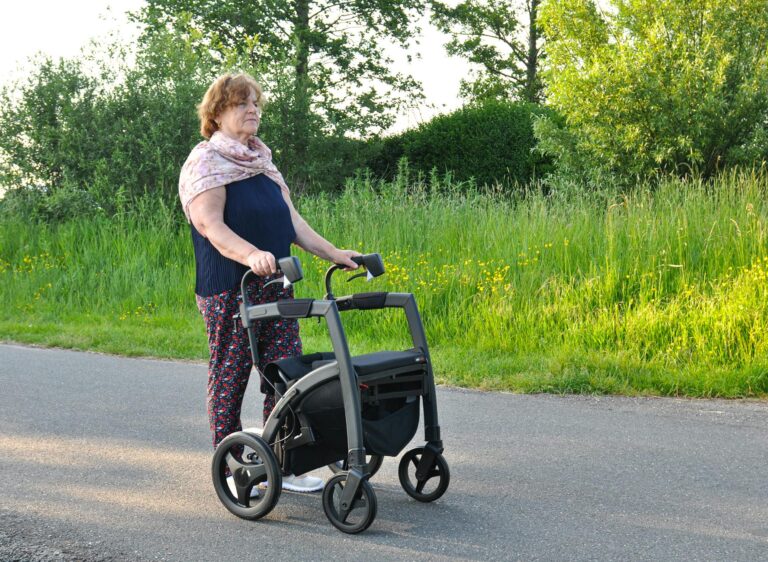Dementia is a debilitating condition that affects millions of people worldwide. It is a progressive brain disorder that causes memory loss, cognitive decline, and behavioral changes. As the disease progresses, patients often become more dependent on others for their basic daily needs. However, one aspect that is often overlooked in the care of dementia patients is self-care.
Self-care refers to the ability to take care of oneself and meet their own needs. This includes physical, emotional, and mental well-being. It involves activities such as eating well, staying physically active, maintaining personal hygiene, and engaging in hobbies and social interactions. Self-care is important for everyone, but it becomes even more crucial for individuals with dementia.
Unfortunately, self-care is often lacking in dementia patients. This can be due to a variety of reasons such as the progressive nature of the disease, lack of support from caregivers, and the patient’s own limitations. However, neglecting self-care can have serious consequences for dementia patients, both physically and mentally.
Physical Consequences
The physical consequences of self-care lacking in dementia patients can be quite severe. As the disease progresses, patients may experience memory loss and forget to take care of their basic needs such as eating and personal hygiene. This can lead to malnutrition, dehydration, and poor hygiene, which can cause various health issues.
Malnutrition is a common problem among dementia patients who are not able to take care of their own meals. They may forget to eat or lose interest in food altogether. This can result in significant weight loss and deficiencies in essential nutrients, which can weaken the immune system and make the patient more susceptible to infections and illnesses.
Dehydration is another common issue among dementia patients who do not have proper self-care. They may forget to drink enough water or may not recognize when they are thirsty. Dehydration can lead to dizziness, confusion, and even hospitalization in severe cases.
Poor hygiene can also have adverse effects on the physical health of dementia patients. As they become less capable of taking care of themselves, they may neglect basic hygiene practices such as brushing their teeth, bathing regularly, and changing clothes. This can lead to skin infections, oral health issues, and urinary tract infections.
Mental Consequences
The consequences of self-care lacking in dementia patients are not limited to physical health. It can also have a significant impact on their mental well-being. Dementia patients already have to deal with memory loss and cognitive decline, and neglecting self-care can worsen these symptoms.
Forgetting to engage in enjoyable activities such as hobbies and social interactions can lead to feelings of isolation and loneliness. This can put dementia patients at a higher risk of developing depression and anxiety, which can further worsen their cognitive decline.
Lack of self-care can also affect a patient’s sense of dignity and self-worth. As they become more dependent on others for their basic needs, they may feel like a burden and lose their sense of identity. This can lead to a decrease in self-esteem and confidence, causing them to withdraw from activities that they used to enjoy.
How to Address Self-Care Lacking in Dementia Patients
Taking care of the self-care needs of dementia patients is crucial for their overall well-being. It is essential to involve caregivers, family members, and healthcare professionals in addressing this issue. Here are some ways to promote self-care in dementia patients:
1. Establish a routine: A daily routine can help dementia patients remember important tasks such as eating, taking medications, and personal hygiene. It can also provide a sense of structure and stability for the patient.
2. Make self-care activities easier: Dementia patients may have difficulty performing tasks that they used to do easily. Caregivers can help by simplifying activities and providing aids such as adaptive equipment or visual cues.
3. Encourage independence: Even though patients may require assistance with some tasks, it is important to promote their independence as much as possible. This can help maintain their sense of dignity and self-worth.
4. Incorporate enjoyable activities: Engaging in hobbies and social interactions can have a positive impact on the mental well-being of dementia patients. Caregivers can help by providing opportunities for these activities and participating with them.
5. Educate caregivers: Caregivers play a vital role in promoting self-care in dementia patients. It is essential to educate them about the importance of self-care and provide them with tips and strategies to support patients in this aspect.
In conclusion, self-care is a crucial aspect of overall well-being, especially for individuals with dementia. However, it is often lacking in these patients due to various reasons. Neglecting self-care can have severe physical and mental consequences. By involving caregivers and healthcare professionals, and promoting independence and enjoyable activities, we can address self-care lacking in dementia patients and help improve their quality of life.





